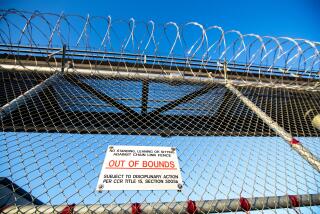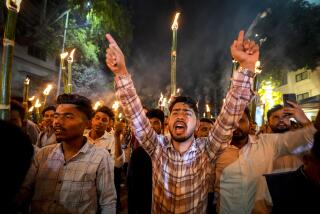In India, Hindu priests and religious conservatives resist court order to allow women into temple
Dressed in army fatigues and a helmet, television journalist Kavitha Jakkal trekked toward a renowned Hindu temple in southern India on Friday surrounded by 300 police officers, with a chance to make history.
But about 500 yards from the temple entrance, the officers advised her to turn back.
For three days, conservative Hindu groups, temple authorities and devotees have formed a human barrier at the gates of the Sabarimala temple complex to block women from entering, in defiance of an order by India’s top court.
The Supreme Court ruled last month that the temple’s long-standing ban on women of menstruating age — instituted because the temple deity, Lord Ayyappa, is considered celibate — was unconstitutional and infringed on women’s freedom of worship.
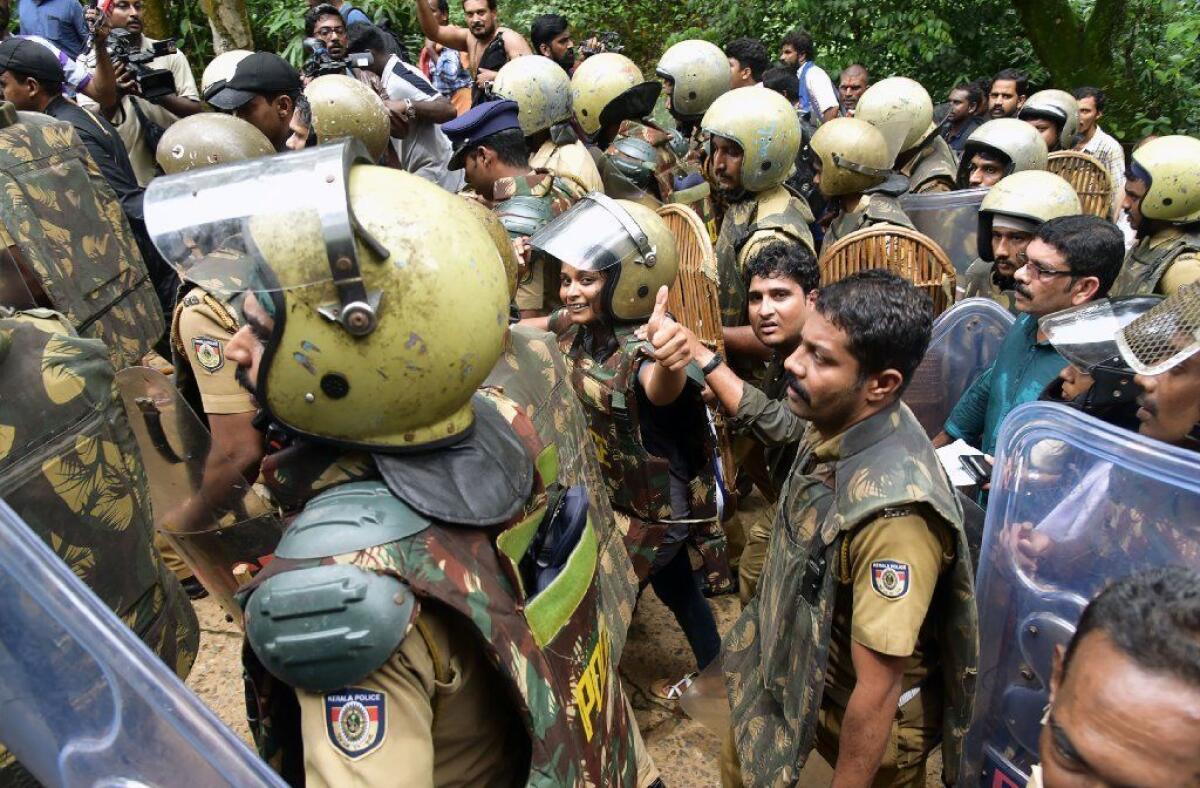
But conservative Hindu groups as well as tribal women from the area are continuing the fight for the temple to ban women.
The case has exposed social fault lines in a country of 1.3 billion people, the vast majority of them Hindu, where traditional faith practices often prevail over the liberal, secular values enshrined in the constitution.
Hinduism isn’t the only Indian faith to adhere to such traditions. Other religions regard women’s menstruation as impure. And until last year, India allowed Muslim men to divorce their wives simply by stating their intention three times — a practice known as triple talaq.
The Hindu temple, situated in a hilly mountain range of the Western Ghats in the coastal state of Kerala, for centuries has disallowed entry of women ages 10 to 50. One of the busiest pilgrimage sites in India, it is open only for a few weeks every year, and when it reopened Wednesday for the first time since the Supreme Court ruling, hard-line Hindu demonstrators were ready.
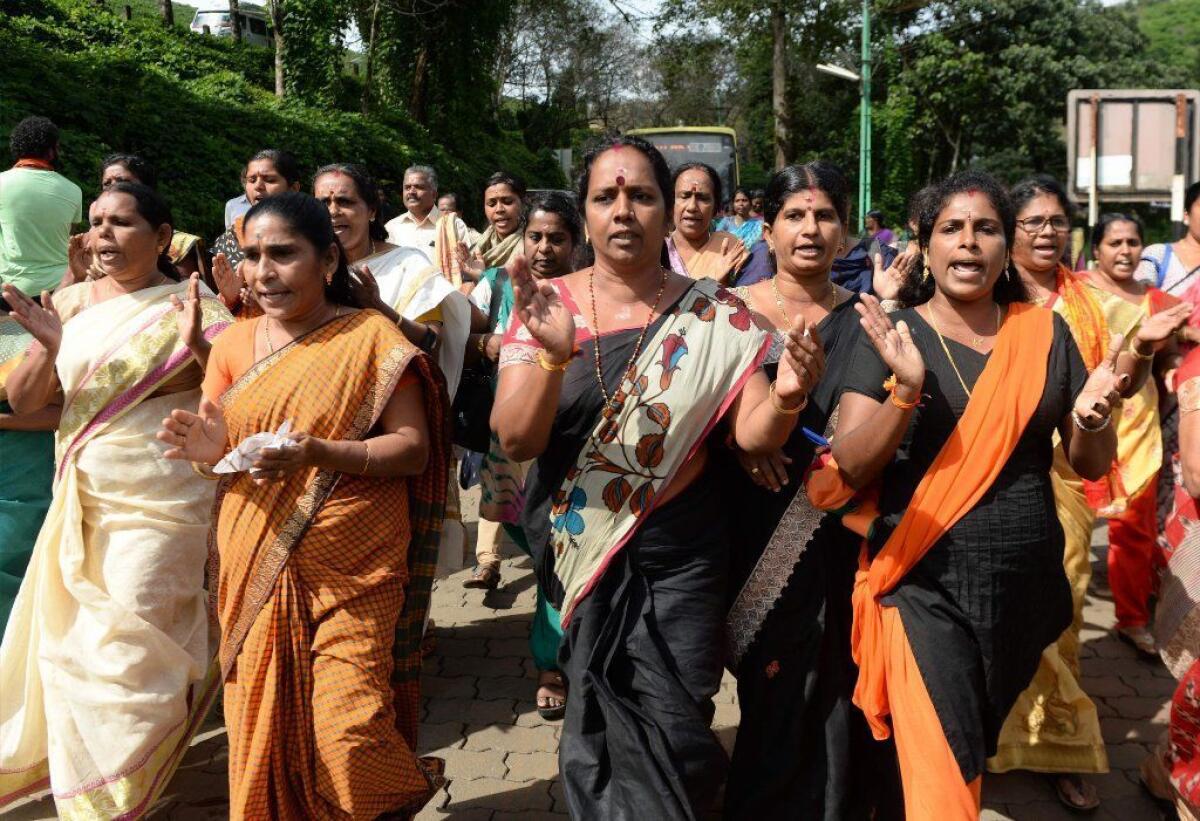
Protesters gathered at Nilakkal, 14 miles from the temple, at a spot where cars traveling there must cross. Despite a heavy police presence, the protesters checked the passing buses and private cars for women.
“If women enter Sabarimala, then we will be forced to shut the temple,” head priest Kandararu Rajeevaru told the CNN-News18 network. “I will walk out with the keys.”
Some heckled and hurled stones at television crews. At least 10 journalists, five female devotees and 15 police officers were attacked. Police charged at the protesters with batons. No serious injuries were reported.
The protests continued Friday when Jakkal, a journalist with Mojo TV, a Telugu-language station based in the southern city of Hyderabad, and social activist Rehana Fathima separately sought to enter the temple. Both turned back before they reached the protesters, acting on the advice of police after the head priest said he would shut down the temple rather than let them in.
Both pledged to try again if they were provided security.
“We are feeling proud to come here,” Jakkal told reporters. “You have seen what a dangerous situation we faced.”
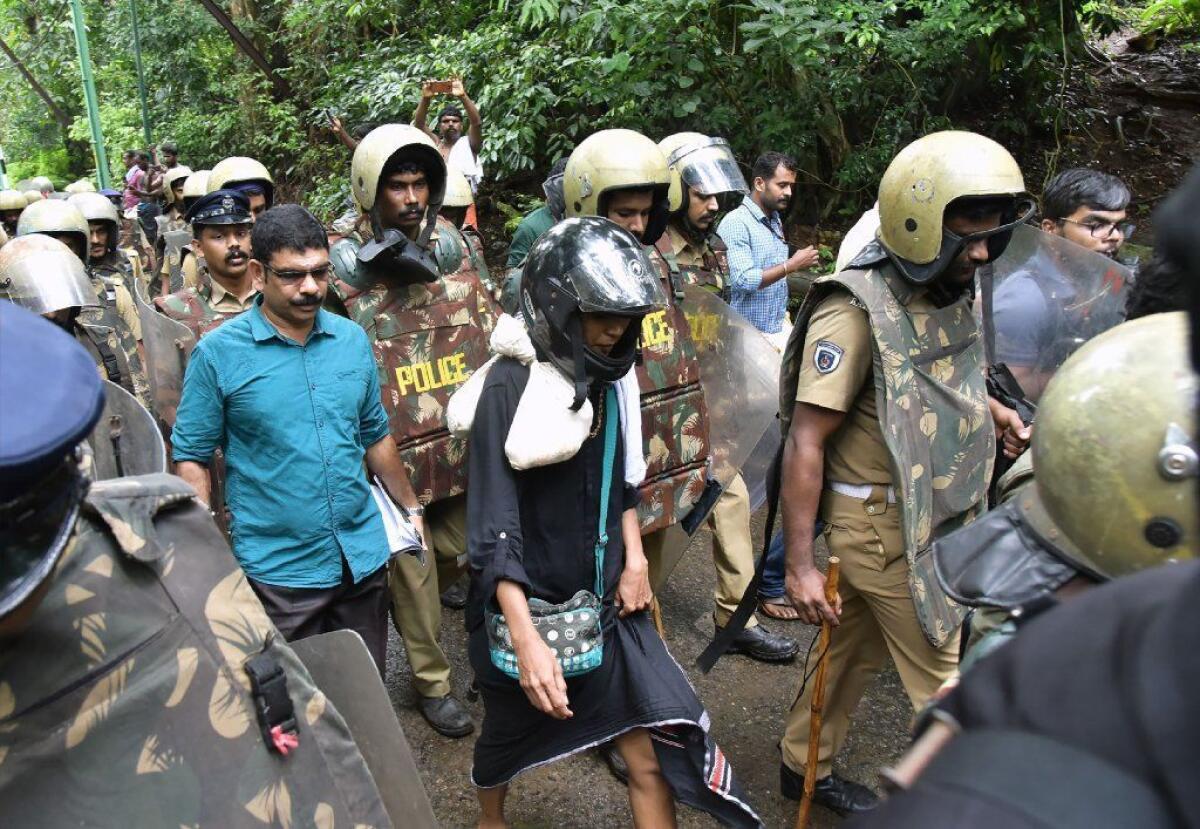
The temple is due to close Sunday, not to reopen until mid-November.
Several groups of devotees have asked the Supreme Court to review its decision, arguing in a petition that the ruling was “untenable and irrational, if not perverse.”
“Faith cannot be judged by scientific or rationale reasons or logic,” the court filing stated.
The Supreme Court did not immediately schedule a hearing in the matter. Such review petitions are rarely successful.
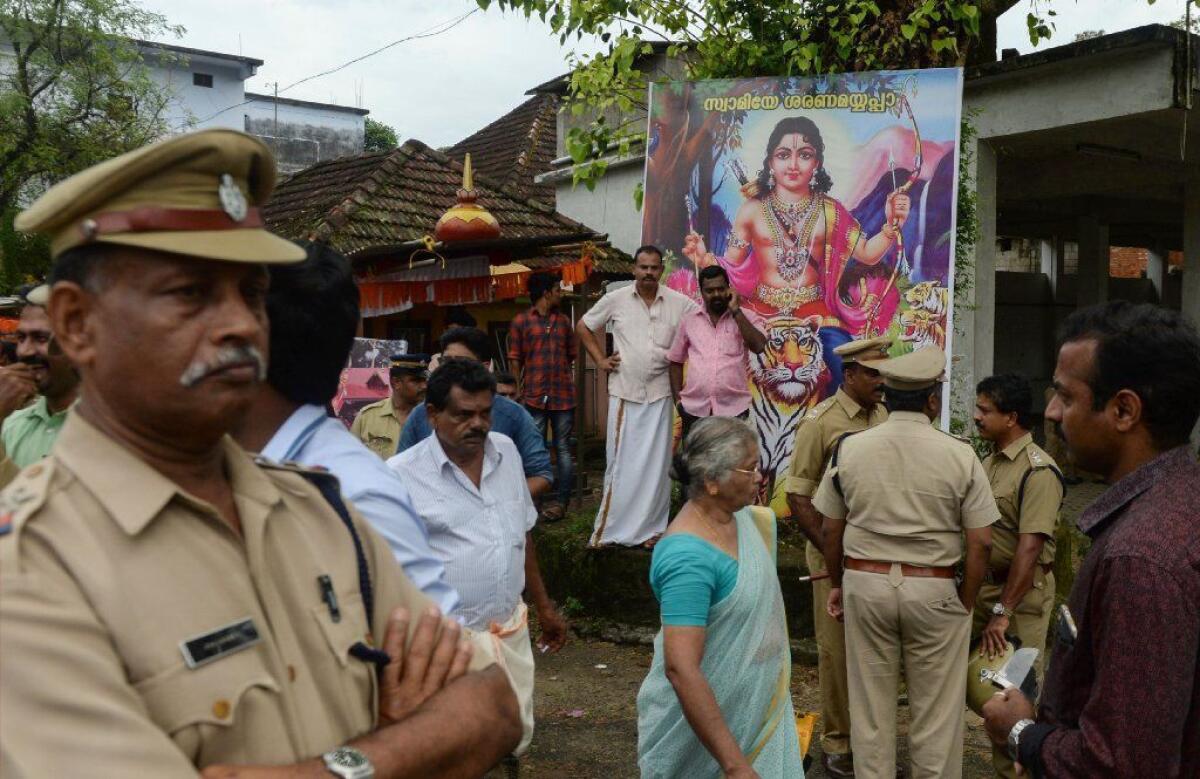
The Travancore Devaswom Board, the temple’s governing body, initially declined to be a party to the review petition. But on Friday, the group held a meeting and said it planned to approach the court to attempt to reach a compromise to end the standoff.
Political parties in Kerala, a left-leaning state run by a Communist party, have also taken sides.
The state’s top official, Chief Minister Pinarayi Vijayan, said his government would deploy more female police personnel to protect women devotees.
“Women, too, have the right to worship in a temple like any other women,” he said. “This government is committed to implementing the Supreme Court verdict.”
The Hindu nationalist Bharatiya Janata Party — which runs the national government in New Delhi and has been trying to make inroads in Kerala — has backed the Hindu protesters. The party’s general secretary in the state, K. Surendran, told reporters that if the state government sought to force women’s entry into the temple, “we will prevent it, even by taking the law into our hands.”
Women from a group called the Save Sabarimala Forum responded to the police action against the protesters by marching outside the Kerala inspector general’s house in the state capital.
Masih is a special correspondent.
More to Read
Start your day right
Sign up for Essential California for news, features and recommendations from the L.A. Times and beyond in your inbox six days a week.
You may occasionally receive promotional content from the Los Angeles Times.

